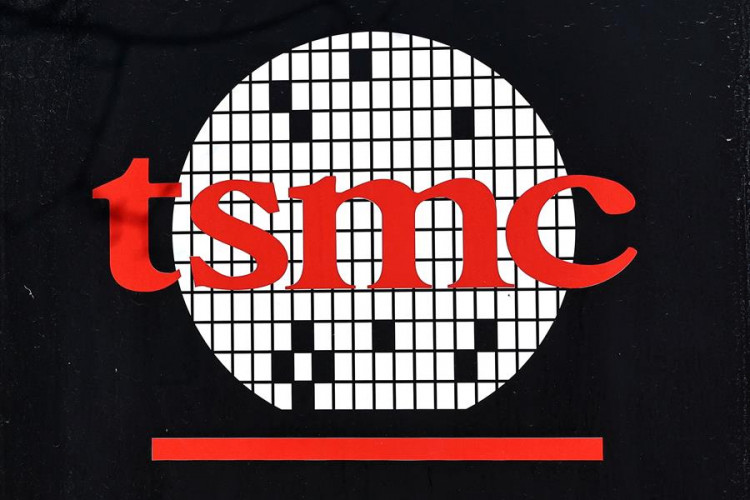Shares of U.S. chipmakers surged on Thursday after Taiwan Semiconductor Manufacturing Co. (TSMC), the world's largest contract chipmaker, delivered an upbeat sales forecast driven by booming demand for artificial intelligence (AI) processors. The company's strong third-quarter earnings, bolstered by record profits, reassured investors about the resilience of AI-related demand, sending a wave of optimism across the semiconductor industry.
TSMC reported a 54% increase in net profit for the third quarter, significantly outpacing expectations. The company attributed this growth to heightened demand for its advanced chips used in AI applications and smartphones, especially its industry-leading 3nm and 5nm technologies. "Our business was supported by strong smartphone and AI-related demand," TSMC said in a statement, highlighting the growing role of AI in its operations.
The company's U.S.-listed shares jumped nearly 10% following the results, helping to push the stock's year-to-date gains to over 80%. TSMC's upbeat outlook also had a ripple effect on other chipmakers, with Nvidia, a major customer of TSMC, seeing its stock rise by 3%. Other U.S. chip companies, including Advanced Micro Devices (AMD), Broadcom, and Micron, also posted notable gains.
Dan Coatsworth, an investment analyst at AJ Bell, pointed to the strong connection between TSMC's performance and its U.S. customers, particularly Nvidia. "Nvidia is one of TSMC's major customers, so there is a direct read-across to the American chip firm in the Taiwanese company's results," Coatsworth said. Nvidia, a frontrunner in AI chip design, has seen its stock soar as it continues to benefit from the AI revolution sweeping through Big Tech.
TSMC's net income for the July-September period reached 325.3 billion Taiwanese dollars ($10.1 billion), exceeding market estimates of $300.2 billion. The company's net revenue for the third quarter hit $23.5 billion, a 36% year-over-year increase. Gross margins also improved, rising to 57.8% compared to 54.3% in the same quarter last year, further underscoring TSMC's growing profitability.
The chipmaker's robust outlook for the rest of the year provided additional confidence to investors. TSMC projected fourth-quarter revenues to range between $26.1 billion and $26.9 billion, which would represent a 13% sequential increase and a 35% year-over-year rise at the midpoint. This guidance helped calm fears of a broader slowdown in the semiconductor sector, particularly after recent forecast cuts from equipment giant ASML had sparked concerns over non-AI chip demand.
"Fortunately, everything is fine in AI land," Coatsworth noted, emphasizing that TSMC's focus on AI-related chips has allowed the company to maintain its momentum despite challenges in other parts of the semiconductor market. Investors have been particularly bullish on AI-related stocks, with billions of dollars flowing into chipmakers whose products power AI applications used by Big Tech firms and other industries.
During an earnings call, TSMC Chief Financial Officer Wendell Huang confirmed the company's upbeat outlook, noting that the surge in demand for AI chips was real and sustainable. "We expect AI demand to continue driving growth into next year, with our customers, including hyperscalers and AI innovators, increasingly reliant on TSMC's advanced chips," Huang said. TSMC's chairman and CEO, C.C. Wei, echoed this sentiment, stating, "We have experienced the deepest and widest growth in the industry, and almost every AI innovator is working with us."
The surge in demand for AI chips has also prompted TSMC to ramp up its capital expenditure plans. The company now expects to spend slightly more than $30 billion in capital investments this year, a figure that includes a $65 billion investment in three new chip plants in Arizona aimed at meeting growing U.S. demand. Additionally, TSMC opened its first chip manufacturing plant in Japan earlier this year, reflecting the company's global expansion strategy.
U.S. chipmakers are benefiting from this AI-driven growth as well. Shares of Nvidia, which has become the poster child for the AI chip revolution, reached new all-time highs, while AMD and Micron also saw their stocks rise by 2% and 4%, respectively. Intel, a key player in the semiconductor market but a latecomer to the AI chip race, saw its shares increase by 1.3%. Intel has been investing heavily in expanding its chip fabrication facilities, although analysts believe it will take years before it can seriously challenge TSMC's dominance in advanced contract manufacturing.
Despite these positive developments, challenges remain for the semiconductor industry. TSMC's strong results and AI-driven outlook came just after ASML, a key supplier of chip-making equipment, slashed its forecasts due to weaker-than-expected demand for non-AI semiconductors. This divergence between AI-related growth and other sectors within the industry highlights the importance of innovation in maintaining momentum, especially in a market prone to cyclical downturns.






